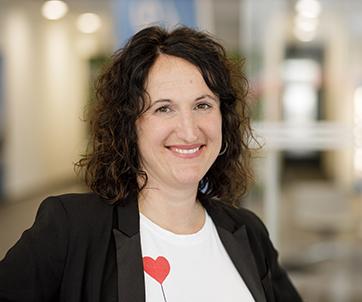ENGIE Refrigeration supports EU-funded pilot project - thermeco2 heat pump enables highly efficient solution for BS Energy
ENGIE Refrigeration GmbH has received its first major order for the production, supply and commissioning of a thermeco2 heat pump. This is a beacon project, because the heat pump will be installed at BS Energy, an energy supplier in Braunschweig, as part of the ReUseHeat pilot programme of the European Union. ENGIE, the heat and refrigeration specialist from Lindau, acquired the CO2 high temperature heat pumps unit from the insolvency assets of Hafner-Muschler Kälte- und Klimatechnik GmbH & Co. KG only a few months ago.
How can waste heat in cities be used for heating purposes? A good example is a project run by BS Energy, an energy, heat and water supplier in Braunschweig, and its majority shareholder Veolia Deutschland. Along with three other demonstration projects in Madrid, Nice and Berlin, it is part of the ReUseHeat research and innovation programme, to which the European Union has contributed 3.9 million euros in total. The Braunschweig project will be implemented in the new Heinrich der Löwe district, which is currently being developed on the grounds of a former barracks. Around 600 living units will be supplied with waste heat from a nearby data centre. This makes it possible to create a low-temperature heat network, which is also being set up at present.
Innovative solution for utilising waste heat
BS Energy is relying on the expertise of ENGIE Refrigeration, the heat and refrigeration specialist from Lindau on Lake Constance: A type HHR 360 CO2 high temperature heat pump from the thermeco2 series will be deployed in the Braunschweig residential area. The heat pump will use the waste heat from a data centre as its heat source. The thermeco2 heat pump will use cooling water from the data centre with a temperature of 25 degrees to create hot water with a temperature of 70 degrees. This generates a heating capacity of 370 kilowatts, which is then fed into the local heating network of the new city district. The refrigeration specialist from Lindau can thus ensure the exact temperatures that the local heating network requires. In general, thermeco2 heat pumps are suitable for local heating networks with particularly large temperature spreads between feed and return temperatures. Paired with a heat source that is easy to develop, this promises customers an economical and efficient solution. It is possible, for example, to use electrical power to raise the low temperature level (heat source) for the thermeco2 heat pump up to 90 degrees Celsius; in this range, the thermeco2 heat pump is of great benefit due to its intelligent and autarkic regulation. ENGIE Refrigeration designs its heat pumps to be in constant operation and match the baseload of heat at any time of year. In order to meet increased heat requirements in winter, the local heating network will also be connected to BS Energy’s existing district heating network. In the summer months, the data centre will receive additional cooling – a solution for utilising waste heat that is as innovative as it is efficient.
Focus on eco-friendliness
But the project supported by ENGIE Refrigeration does not just demonstrate high levels of energy efficiency. The solution is also environmentally friendly, because the thermeco2 heat pump uses the sustainable refrigerant CO2. CO2 is also particularly future-proof, as it is easily available and therefore cheap to obtain. For BS Energy, it was important to use a CO2 high temperature heat pump and implement the EU pilot project accordingly together with ENGIE Refrigeration.
Pilot project for the EU
After a one-year planning phase, the practical implementation of the project is now in full swing: As a first step, BS Energy set up a refrigeration and heating plant, followed by piping construction in the “Heinrich der Löwe" district. At the end of March 2019, ENGIE Refrigeration supplied the thermeco2 heat pump. The refrigeration experts will also handle maintenance in the coming years. During the first few months, the residential estate will be supplied from the district heat connection. Integration of the data centre will take place during the year, so that it will be possible to use waste heat for heating purposes from next winter. This means the project is on schedule as part of the ReUseHeat programme, which will run until the end of 2021. Afterwards, all four demonstration projects from Braunschweig, Madrid, Nice and Berlin will be analysed and evaluated, and the results will be published by the EU in a final report.

ENGIE Refrigeration GmbH